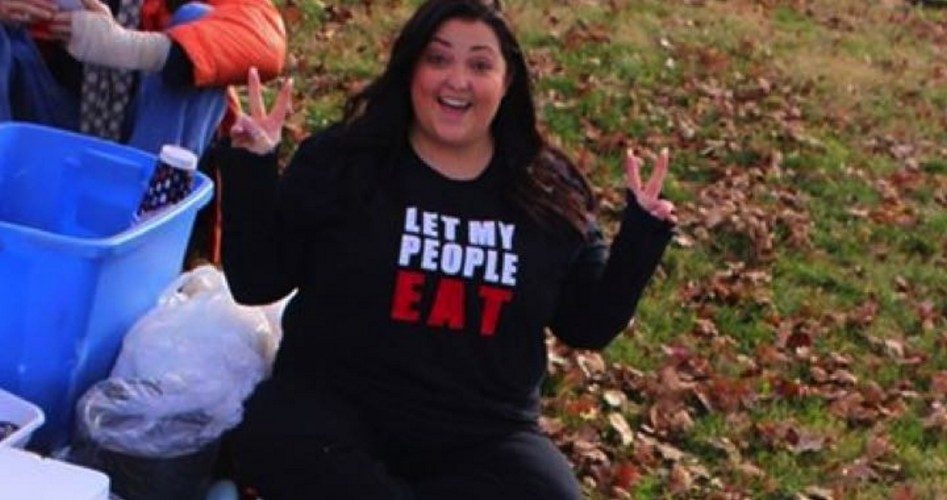
On November 4, a loose-knit group of warmhearted Kansas Citians held picnics in four city parks to feed the homeless. City health department officials, accompanied by police, raided the picnics and destroyed the food, claiming it could not be served because the group had failed to obtain a food-safety permit from the health department.
The scene “looked ugly,” reported the Kansas City Star. “Home-cooked chili, stacks of foil-wrapped sandwiches, vats of soup and other food prepared by volunteers with Free Hot Soup Kansas City were dumped in bags and soaked in bleach to make sure no one went back to try to recover it.”
Anyone with an ounce of common sense would have foreseen the public reaction to the raids, yet “the Health Department seemed stunned that these brutish actions upset people,” Barbara Shelly wrote in the Pitch, a Kansas City alternative newspaper. “What were they expecting — smiles and cups of coffee?”
Health department director Rex Archer, naturally, defended his inspectors’ actions. “This operation [Free Hot Soup] claims to care about folks, but if you care about folks, you want to prepare food safely,” he told KCUR. He rattled off a litany of illnesses that the homeless could contract from the food and suggested they might end up in emergency rooms or even die.
“On and on he went, as though homelessness was not a hazardous lifestyle to start with,” recounted Shelly. “Denied a bowl of hot soup, would the city prefer these people dive in dumpsters?” (She pointed out that Archer had “used the same scare tactic a few years ago” to try to get the city council to regulate food-sharing programs like Free Hot Soup, only to be stymied when “no one could cite any incident of food-borne illnesses in Kansas City caused by acts of charity.”)
Mayor Sly James, a Democrat, also dug in his heels, tweeting, “Rules are there to protect the public’s health, and all groups must follow them, no exceptions.”
Archer said Free Hot Soup could obtain a free permit from the health department, as many other charitable organizations have done, and it would then be allowed to resume its activities. However, noted Shelly, “For many groups, a ‘free’ permit could easily involve shelling out thousands of dollars to pass a food preparation inspection.”
Besides, said 28-year-old Nellie McCool, who started the picnics in 2015, Free Hot Soup isn’t an organization. “We’re a community of people who feel it’s their passion to share with the most vulnerable people in our community,” she told the Star.
“This is scaring all of us,” said Tara McGaw, 27, who started Free Hot Soup gatherings in another neighborhood. “We’re not an establishment. We’re not a not-for-profit. We’re just friends trying to help people on the side.”
But as the Foundation for Economic Education’s Carey Wedler reminded readers, “Local governments nationwide have been restricting well-meaning citizens from feeding the homeless for years”:
In 2014, a 90-year-old veteran in Fort Lauderdale, Florida, was cited and arrested multiple times for feeding the homeless without a permit in an ongoing ordeal that ultimately led a circuit court to temporarily halt the policy. Earlier this year in San Diego, California, a group of activists was arrested for the same offense. Following Hurricane Michael, a viral video circulated of health department officials in Panama City, Florida, apparently shutting down food donations because those distributing it, once again, did not obtain the proper permitting from the health department.
As in those instances, the Kansas City crackdown had little to do with concern for the homeless. Instead, it was a response to complaints about the crowds of people who gather for the picnics and the litter they leave behind. When a Free Hot Soup representative told people at a September neighborhood-association meeting that the group had no intention of seeking a permit from the health department, inspectors swung into action, monitoring social media to find out when and where the next picnics would be so they could put a stop to them.
“If neighbors object to needy people congregating near their homes, the city already has ordinances regulating loitering and littering,” observed Shelly. “Rather than enforcing them, it chooses to limit good works.” And the homeless, whom politicians always claim to champion, will suffer.
Image: Screenshot from Facebook page of Free Hot Soup (Kansas City)



